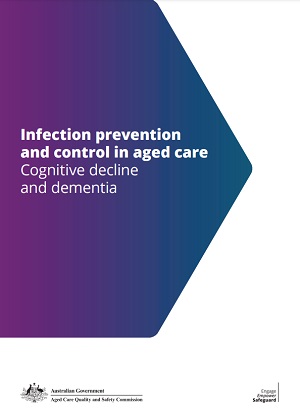If you’re thinking about accessing aged care services for you or your family, this guide will help you talk to family, friends and community about aged care and your rights.
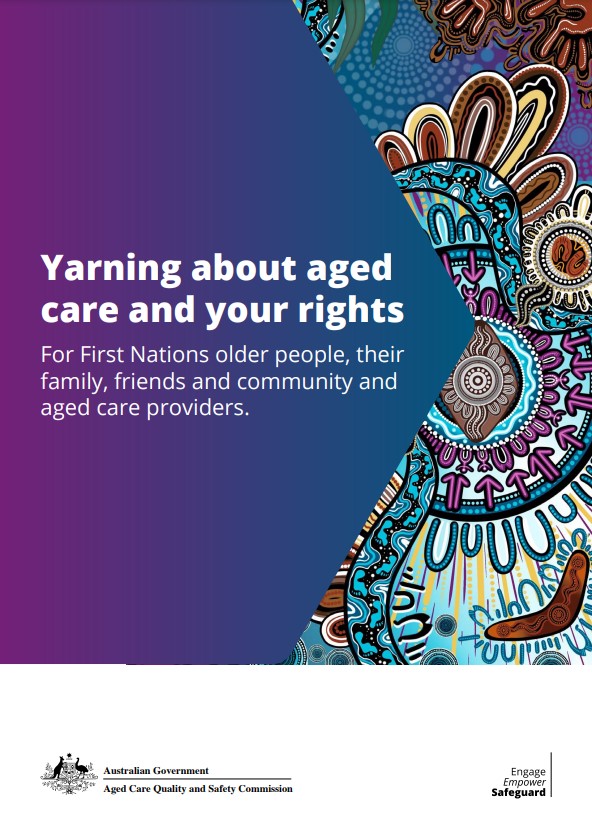
The new Financial and Prudential Standards will be introduced with the commencement of the new Aged Care Act. The new Standards set out the minimum requirements for good financial and prudential management of registered aged care providers. Registered providers must comply with the Financial and Prudential Standards that apply to them as a condition of their registration.
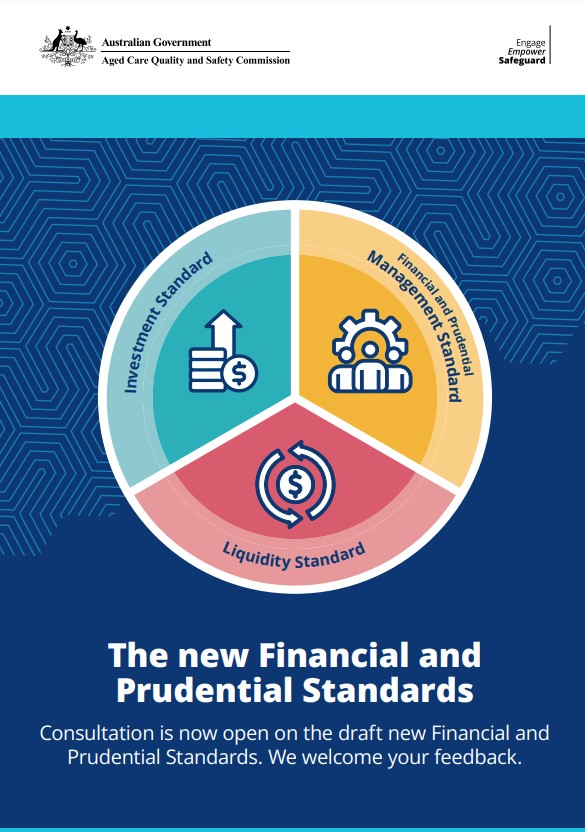
This guide is about how to support people living with dementia to maintain good nutrition and enjoy positive dining experiences.
This resource may refer to information that will be updated from 1 July 2025 to align with the new Aged Care Act and Quality Standards.
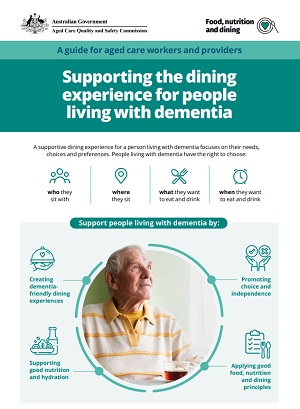
This guide is for family members, friends and other representatives of people living with dementia in residential aged care. It explains ways you can support good nutrition and help create enjoyable dining experiences for them.
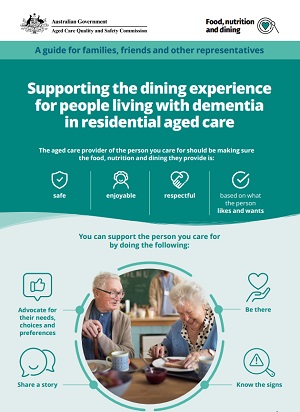
This guide is for family members, friends and other representatives of people living with dementia at home. It explains ways you can support good nutrition and help create enjoyable dining experiences for them in the home environment.
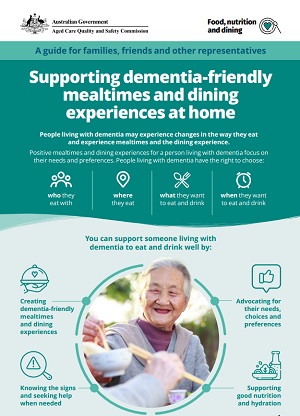
As the national regulator of aged care services, we protect the health, safety and wellbeing of older Australians. We encourage people to contact us with any concerns or complaints about the quality or safety of aged care, or about our work. Our Service Charter explains what you can expect when you contact us or are contacted by us.
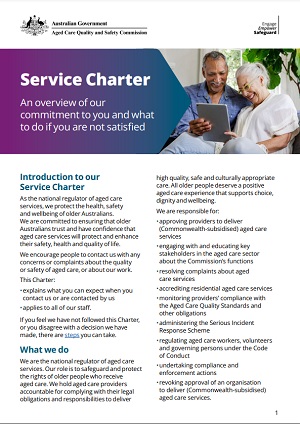
In this kit you will find a range of promotional resources, including social media posts and tiles, and a newsletter article to help you promote our latest complaints report, 'Complaints about aged care home services – Insights for people receiving care (July-December 2023)'.
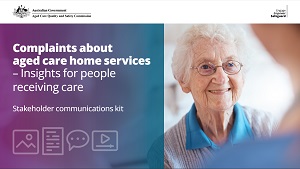
The partner information pack presents information for all people visiting and volunteering in residential aged care services. The resource includes information on the importance of infection prevention and control (IPC), the use of personal protective equipment (PPE), and changes in what you need to do if you visit during an outbreak.
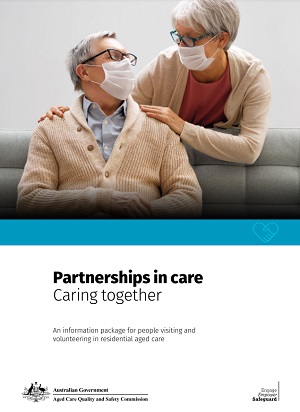
To Dip or Not to Dip (TDONTD) is a quality improvement intervention successfully implemented in UK and Australian aged care homes to improve UTI assessment and antibiotic prescribing appropriateness.
This implementation guide has been drawn from the experiences of homes and champions who have implemented TDONTD, along with feedback from aged care nurses and personal care assistants who have used TDONTD resources.
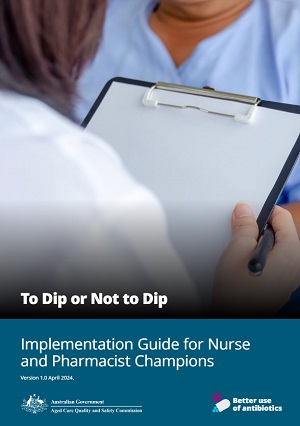
We have released a suite of fact sheets to help providers, aged care workers, and other stakeholders understand the new strengthened Quality Standards and their obligations in meeting them .
The strengthened Quality Standards will come into effect in line with the commencement of the new Aged Care Act.
Strengthened Quality Standard 1 underpins the way providers and staff should treat older people. It explains how important it is to understand that each older person is unique and has a different life story.
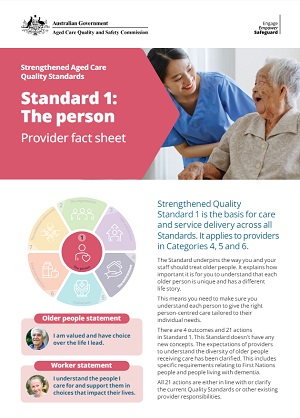
We have released a suite of fact sheets to help providers, aged care workers, and other stakeholders understand the new strengthened Quality Standards and their obligations in meeting them .
The strengthened Quality Standards will come into effect in line with the commencement of the new Aged Care Act.
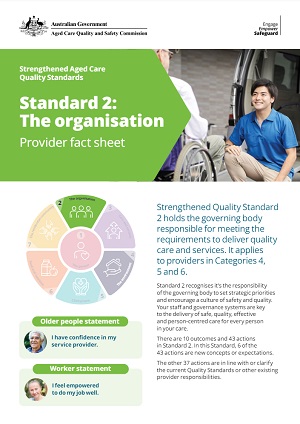
We have released a suite of fact sheets to help providers, aged care workers, and other stakeholders understand the new strengthened Quality Standards and their obligations in meeting them .
The strengthened Quality Standards will come into effect in line with the commencement of the new Aged Care Act.
Strengthened Quality Standard 3 is about the way providers tailor care and services to each person. It's important to understand that the older person has the right to take risks and you need to plan care to support this.
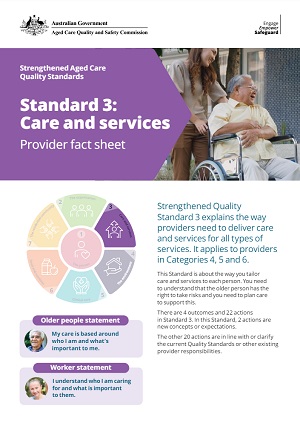
We have released a suite of fact sheets to help providers, aged care workers, and other stakeholders understand the new strengthened Quality Standards and their obligations in meeting them .
The strengthened Quality Standards will come into effect in line with the commencement of the new Aged Care Act.
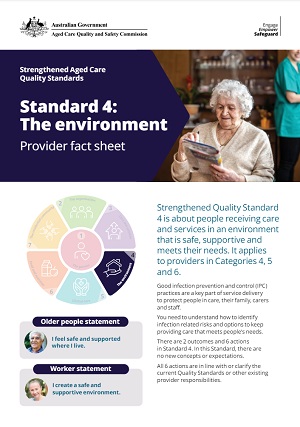
We have released a suite of fact sheets to help providers, aged care workers, and other stakeholders understand the new strengthened Quality Standards and their obligations in meeting them .
The strengthened Quality Standards will come into effect in line with the commencement of the new Aged Care Act.
Strengthened Quality Standard 5 describes the responsibilities of providers to deliver safe and quality clinical care. Good clinical care improves a person’s quality of life, independence, confidence and their feeling of purpose in daily life.
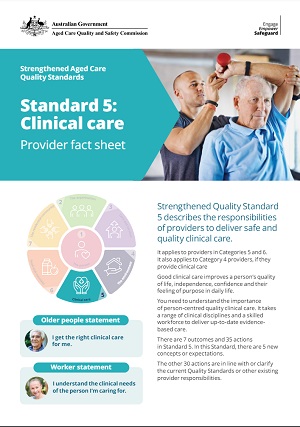
We have released a suite of fact sheets to help providers, aged care workers, and other stakeholders understand the new strengthened Quality Standards and their obligations in meeting them .
The strengthened Quality Standards will come into effect in line with the commencement of the new Aged Care Act.
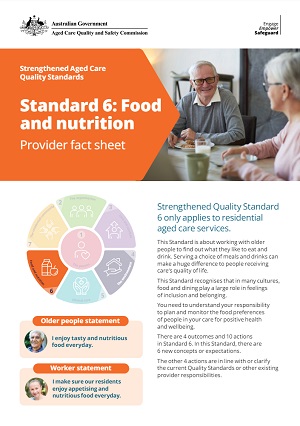
We have released a suite of fact sheets to help providers, aged care workers, and other stakeholders understand the new strengthened Quality Standards and their obligations in meeting them .
The strengthened Quality Standards will come into effect in line with the commencement of the new Aged Care Act.
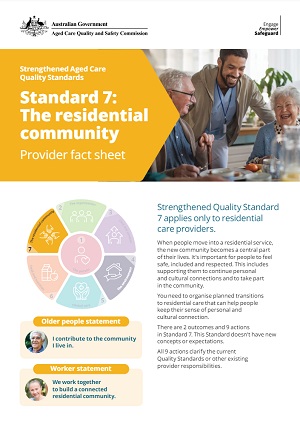
Infection prevention and control, also known as IPC, are the steps and processes that people can use to reduce the spread of harmful germs and bacteria.
People who visit aged care services can help support IPC processes.
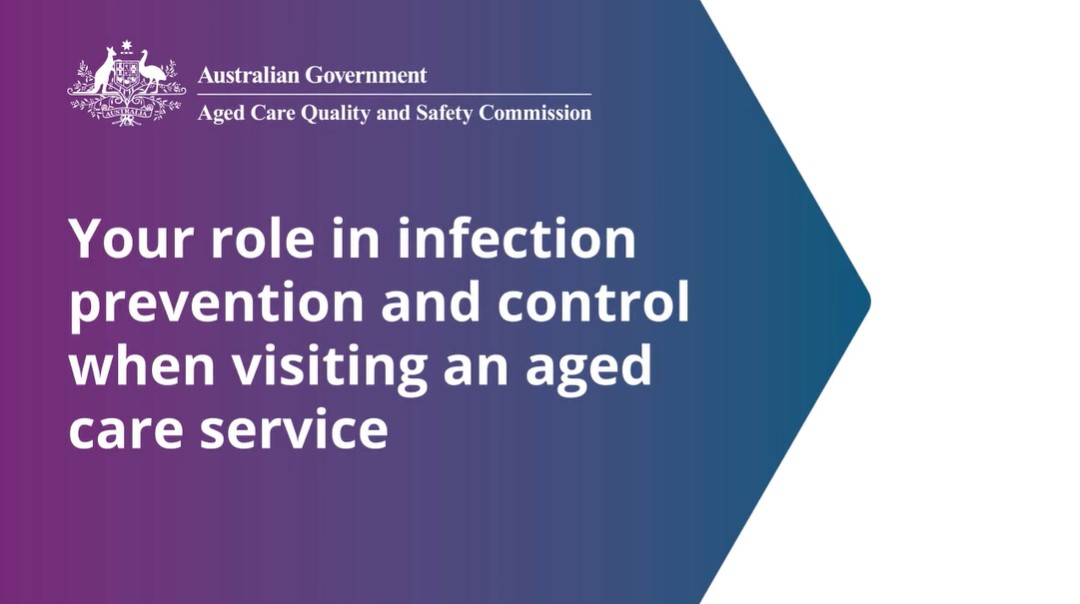
Watch our video series answering the most common questions we have received about the strengthened Aged Care Quality Standards.
In this third episode, Lisa Peterson PSM, Assistant Commissioner for Sector Capability and Regulatory Strategy, discusses the main changes from the current Standards to the strengthened Quality Standards, and gives insight as to how providers will be assessed against them.
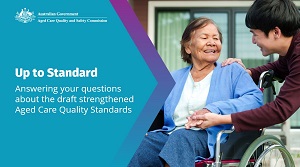
Infection prevention and control helps to stop the spread of germs like bacteria and viruses that cause respiratory infections and gastroenteritis. Hand hygiene is a very important part of this.
In this video you will learn how to clean another person's hands.
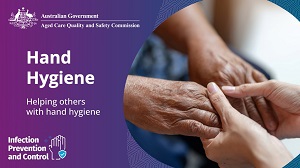
How to create an environment with strong infection prevention and control practices while continuing to provide a positive experience for people with cognitive decline and dementia.
